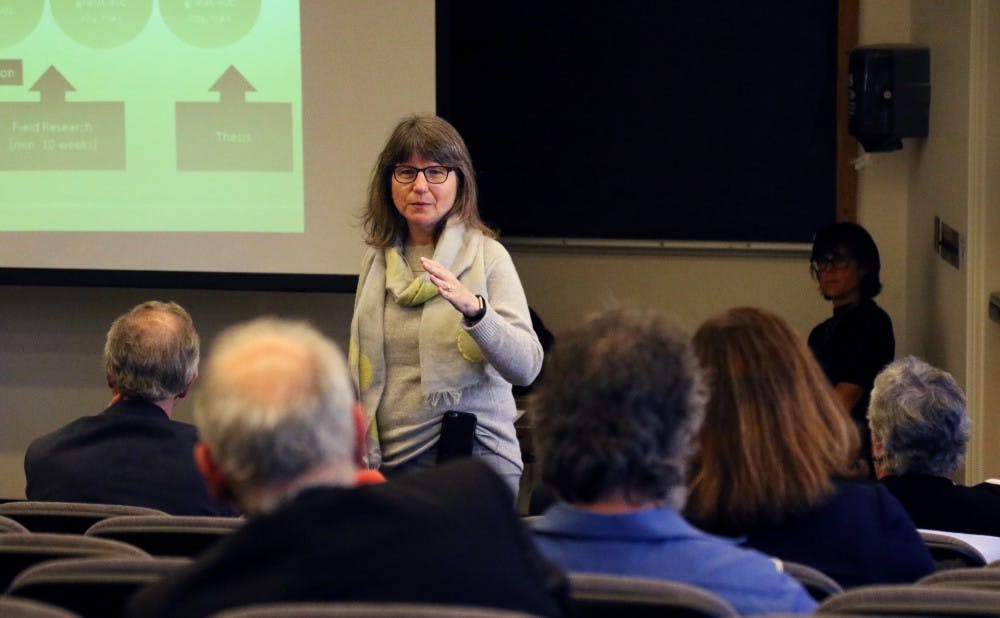Arts and Sciences Council met Thursday to discuss how the University can best adopt accelerated master’s degree programs.
Although such programs already exist in the Pratt School of Engineering and Nicholas School of the Environment, there are none currently within the Graduate School, explained John Klingensmith, associate dean for academic affairs at the Graduate School. The council heard information about a report on how these programs would be launched at Duke and a proposal to launch an accelerated pathway for students to obtain a master’s of science in global health.
“If we can retain some of our very best talent here, that’s obviously for the benefit of our master’s programs as well as Duke students,” Klingensmith said, also noting that “at least eight” graduate units have inquired about developing an accelerated degree program.
Provost Sally Kornbluth said the motivation behind the discussion was twofold: accelerated master’s programs are a way to attract top undergraduates to graduate programs and these programs help reduce the expense of graduate education for students.
Mary Story, professor of community and family medicine and global health, presented the proposal for the global health accelerated master’s program. To join, she said, students would be required to take the Graduate Record Examination test and apply to the master’s program during their junior year of their undergraduate studies. If accepted, they would begin taking graduate-level global health school courses during their senior year in order to complete the degree the following year.
The proposed program, which Story said would focus on preparing students to do global health research, would only accept five to seven undergraduate students each year.
Not all council members were sold on the proposal immediately, however. Karen Shapiro, professor of African and African American studies, questioned how the new curriculum would exist in conjunction with the accelerated master’s programs.
“One of the impulses of Imagining Duke Curriculum is to get away from student specialization, and I want to know if this will end up promoting it,” she said, referring to the Council’s efforts to restructure the undergraduate curriculum.
Kornbluth said she thinks these programs would be best for a small number of specific students.
“If a student identified really early that this is what they want to do, then enabling it is one way to look at it,” she said.
Kornbluth added that the Sanford School of Public Policy will pilot a “4+1” program for its undergraduate students to receive a master’s in public policy.
Kornbluth also noted that creating this pathway would not require much new capacity or take away tuition funding from the Trinity College of Arts and Sciences, though the Graduate School would experience some loss in funding because the students would take less time to complete the degree.
In other business:
Anita Layton, chair of the council and Robert R. and Katherine B. Penn professor of mathematics and biomedical engineering, updated faculty about the work of the Imagining the Duke Curriculum committee. She noted that after having heard feedback on an earlier proposal draft, the committee would release a memo outlining revisions later this month. These will include loosening the requirement that students have a depth of studies in a second field and an expanded ability for students to take pass/fail courses.
The council heard a report about faculty teaching development, which recommended creating a standing committee that would work to help connect faculty to teaching resources and communicate with administrators. Some council members recalled there having been a similar committee in past years that “fizzled out,” and questioned how to ensure resources for faculty were not fragmented across multiple offices in the University.
Get The Chronicle straight to your inbox
Signup for our weekly newsletter. Cancel at any time.
Adam Beyer is a senior public policy major and is The Chronicle's Digital Strategy Team director.

